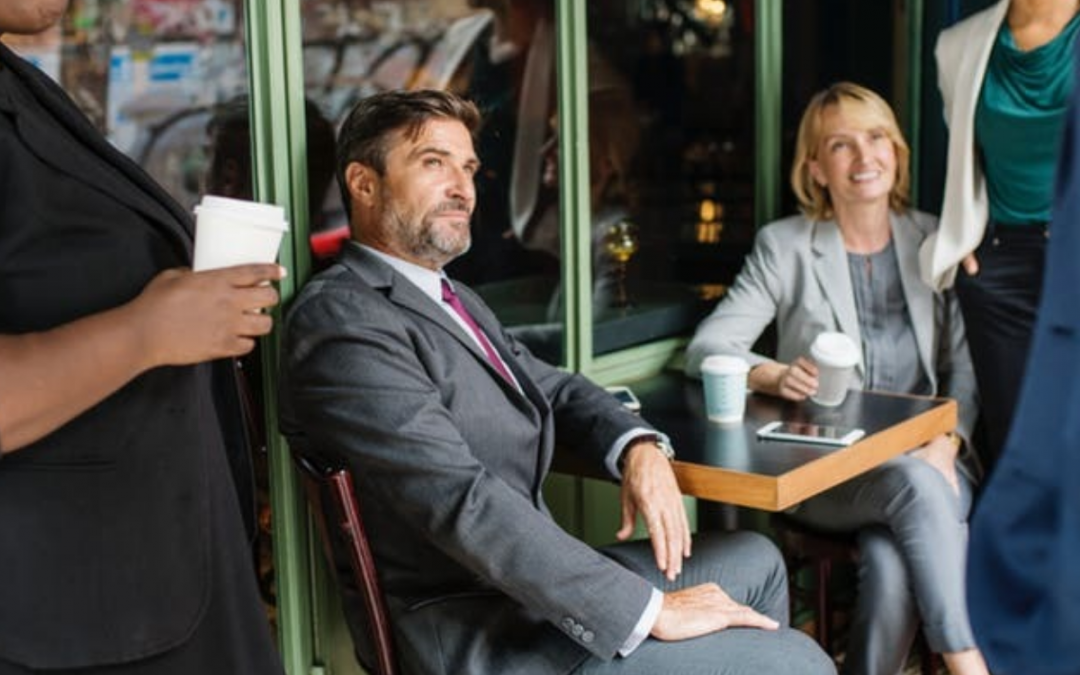Longtime National Public Radio host Celeste Headlee shares what she has found to be the ingredients of a great conversation: “Honesty, brevity, clarity and a healthy dose of listening.” Taking each of these qualities seriously and adding a healthy dose of humor, Headlee talks us through her 10 Rules.
She does address the fact that every conversation holds the potential to devolve into an argument. Our politicians can’t speak to one another civilly and even trivial issues have someone fighting either passionately for them or against them.
Longtime National Public Radio host Celeste Headlee shares what she has found to be the ingredients of a great conversation: “Honesty, brevity, clarity and a healthy dose of listening.” Taking each of these qualities seriously and adding a healthy dose of humor, Headlee talks us through her Ten Rules.
She does address the fact that every conversation holds the potential to devolve into an argument. Our politicians can’t speak to one another civily and even trivial issues have someone fighting either passionately for them or against them.
Citing a Pew Research study of 10,000 American adults, Headlee tells us that we are more polarized and more divided than ever before. She believes that much of this is because we are not listening to each other. “A conversation requires a balance between talking and listening,” she adds, “and somewhere along the way we lost that balance.”
Of course a talk about conversations cannot be complete without the mention of our unceasing use of technology. Headlee talks about an article written by high school teacher Paul Barnwell in which he says, “I came to realize that conversational competence might be the single most overlooked skill we fail to teach.” He observes that kids spend hours each day engaging with ideas and each other through screens, but rarely hone their interpersonal communication skills. “Is there any 21st-century skill more important than being able to sustain coherent, confident conversation?” Barnwell asks.
Before Headlee launches into her ten rules, she reminds us of the importance of nodding and smiling to show that we’re paying attention and summarizing what we have understood. “Forget about all of that,” she adds quite strongly. “There is no reason to learn how to show you’re paying attention if you are in fact paying attention.”
Headlee’s skills as a professional interviewer will help us to learn how to be better conversationalists. How to avoid wasting time, getting bored, or offending anyone. And, how to have conversations where we walk away feeling engaged and inspired , having made a real connection, or been perfectly understood.
Headlee’s 10 Basic Rules for conversations are very good, as are her explanations for why they are significant.
She again emphasizes the importance of listening. Having written several blogs about this myself, I totally agree. Headlee and I have both quoted author Stephen Covey who said, “Most of us don’t listen with the intent to understand, we listen with the intent to reply.”
“Be interested in other people,” says Headlee. “I keep my mouth shut as often as I possibly can, I keep my mind open, and I’m always prepared to be amazed. You do the same thing. Go out, talk to people, listen to people. You won’t be disappointed. Enter every conversation assuming that you have something to learn.”
I encourage you to listen to Celeste Headlee’s TEDTalk. I promise you will not be disappointed and will find yourself having better conversations.

